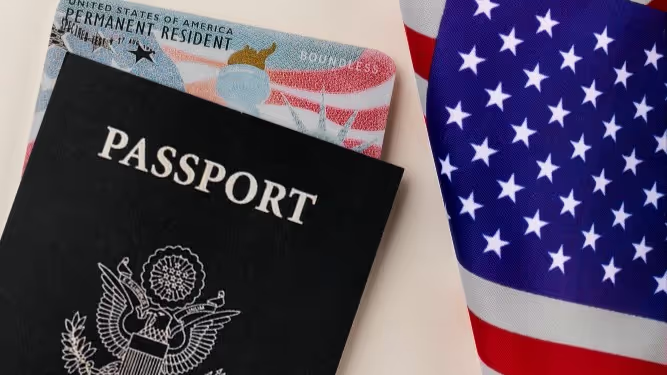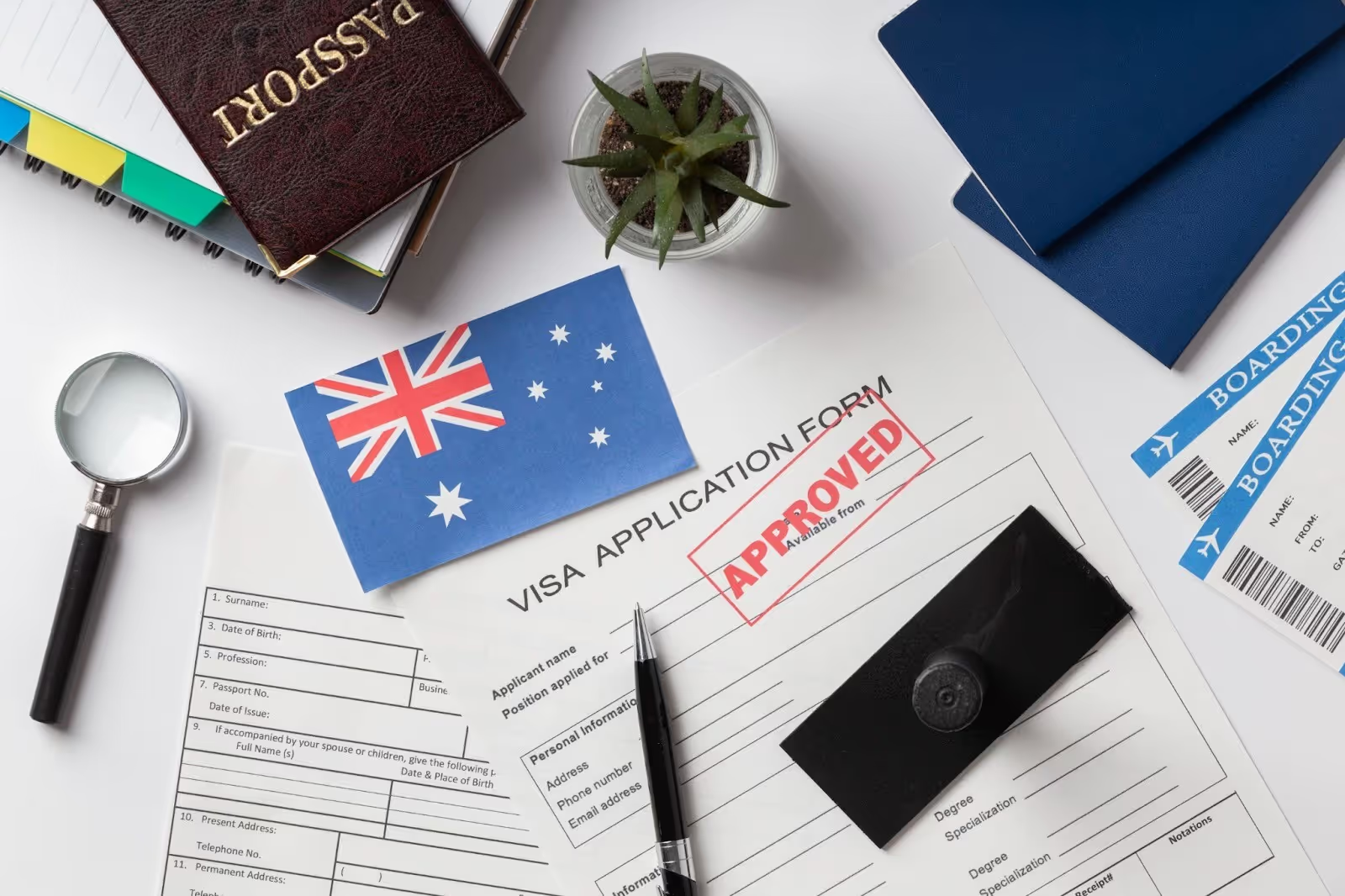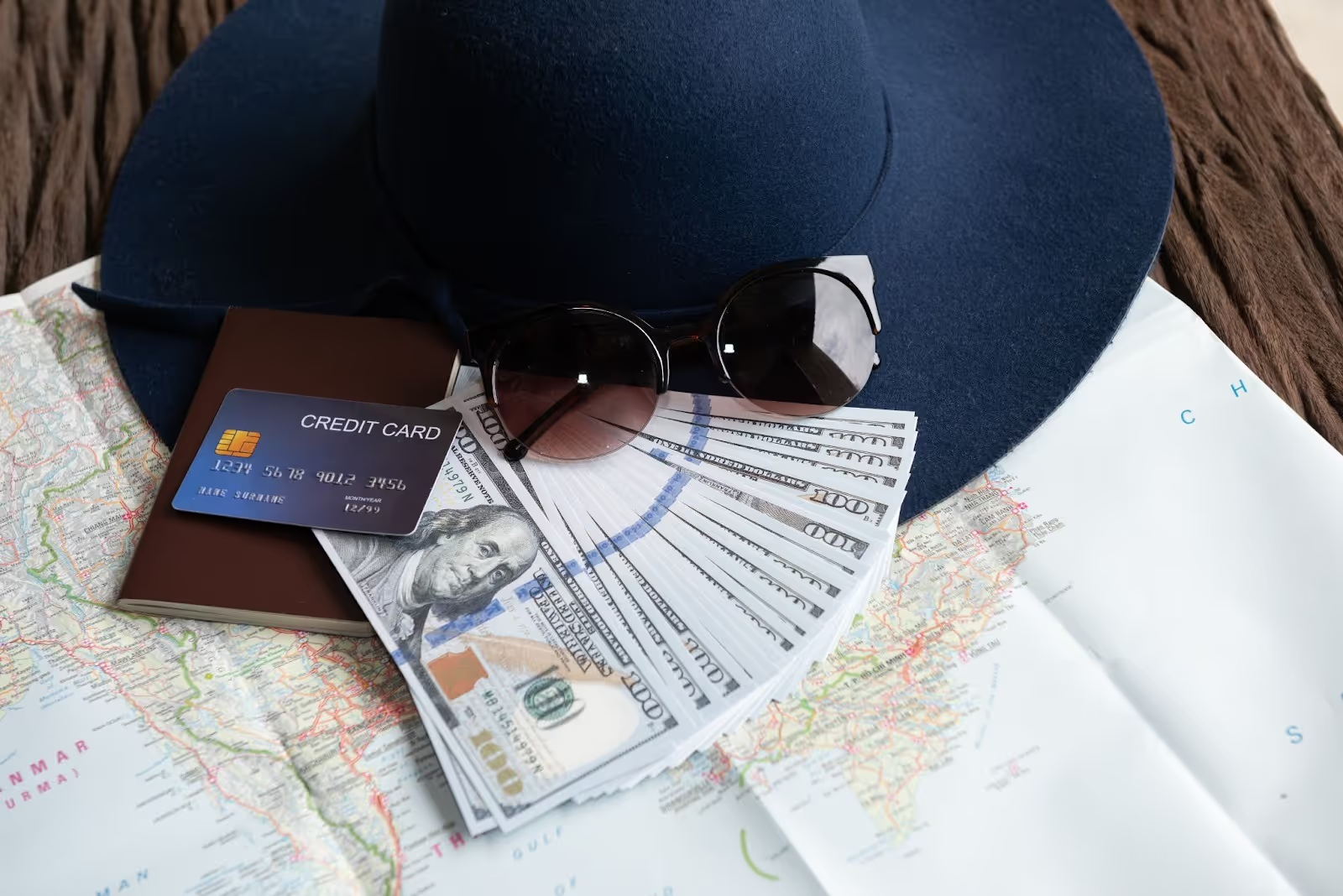.png)
.png)
Learn everything about getting a US visa artist permit. Discover artist visa USA requirements, exact costs, processing times, and approval rates for creative professionals.


There isn't one single "artist visa" in American immigration law.Instead, creative professionals use several pathways. The O-1B visa is the most popular choice. It's designed specifically for artists, musicians, actors, dancers, designers, and entertainment industry workers.Think of it as the golden ticket for creatives.The O-1 visa is for individuals who possess extraordinary ability in sciences, arts, education, business, or athletics, with the O-1B specifically for those with extraordinary ability in the arts or extraordinary achievement in motion picture or television industry. Musicians touring America use it.
Ready to explore if you qualify for an artist visa? Book a free consultation with Beyond Border and we'll evaluate your credentials and map out your pathway to working in America.
The artist visa USA requirements are strict but achievable.To qualify for an O-1 visa, you must demonstrate extraordinary ability by sustained national or international acclaim, or a record of extraordinary achievement in the motion picture and television industry. You must prove distinction in your field. That means skill and recognition substantially above what's normally encountered.
Here's what immigration officers look for:
You need at least three types of evidence from specific categories. These include major awards or prizes, membership in exclusive associations, published material about you in professional publications, original contributions of major significance, or leading roles with distinguished organizations.The record must include at least three different types of documentation corresponding to those listed in the regulations, or comparable evidence in certain circumstances.Won a Grammy or Oscar? You're automatically qualified. But most artists don't have those. That's okay.A gallery owner in Chicago recently told us thatme her biggest mistake was thinking her work wasn't "big enough." She had exhibitions across Europe, features in art magazines, and glowing recommendations from museum curators. She qualified easily once we compiled everything properly.
Not sure if your achievements meet the requirements? .beyondborder immigration specialists can review your portfolio and identify which evidence categories you satisfy.

Let's talk about money. The artist visa USA price varies significantly based on your situation.Government filing fees come first.Filing Form I-129 to seek O classification costs $1,055 for larger organizations and $530 for US nonprofits or filers with 25 or fewer full-time employees, plus additional Asylum Program Fees of $600 or $300 respectively. So you're looking at $1,655 total for larger companies or $830 for smaller organizations and nonprofits.Then there's the visa interview fee. The visa interview fee at US consulates is $190 Want faster processing? Premium processing costs extra. Premium Processing Service costs $2,805 and changes from 15 calendar days to 15 Federal business days for a response from USCIS .You'll also need an advisory opinion letter from a labor union or peer group. Labor unions typically charge between $250 and $750 depending on your profession.
Need a detailed cost analysis for your specific situation? Beyond Border provides transparent pricing and payment plans to make the process manageable.
Time matters when you have performance dates or project deadlines.In 2025, applying for an O-1 visa takes around 2.5 months if filed with the California Service Center, though Vermont Service Center processes faster at about five weeks.Standard processing runs 8-10 weeks typically. That's just for USCIS to review your petition.Premium processing cuts that dramatically. Premium Processing costs extra but guarantees USCIS will respond to your petition within 15 days of receiving. After USCIS approves your petition, you need a visa stamp from a US embassy or consulate. After the embassy interview, the consulate holds the passport and returns it in approximately one week with the visa.Embassy wait times vary wildly by country. Some locations schedule interviews within days. Others take months.
Working on a tight timeline? Beyond Border can expedite your application using premium processing and strategic planning to meet your deadlines.
People ask this constantly. Can you buy a US visa?The answer is No. And yes. It's complicated.You cannot simply purchase an artist visa. No amount of money lets you skip the qualification requirements. However, Ii Investment visas do exist for other purposes. The E-2 treaty investor visa and EB-5 immigrant investor visa require substantial financial investments. But these aren't artist visas. They're business visas with completely different requirements.The O-1 artist visa itself requires zero investment. Unlike some categories, the O-1 visa has no minimum capital investment requirement . Your achievements matter. Your awards and recognition matter. Your reputation matters.
To get an artist visa, you need to satisfy five basic requirements including extraordinary ability in the arts, coming to the US to work in your field, employment qualifying as an event, petition filed by a US employer or agent, and an advisory opinion from a peer group or labor organization.
Here's the roadmap:
Don't navigate this complex process alone. Beyond Border handles every step from finding sponsors to preparing your interview, ensuring nothing falls through the cracks.
The question everyone asks: how hard is it to get an artist visa?Less difficult than you think if you're truly qualified.According to USCIS data from FY2025 Q2 from January to March 2025, the approval rate for the O-1 visa is 94.6%.That's remarkably high. Nearly 95% of applications get approved.According to the most recent statistics available, approximately two thirds of applications for O-1 visas get approved in the initial submission, with another third receiving either denial or a request for evidence.
Why such high approval rates?
The strict requirements filter out unqualified applicants automatically. The O-1 has very clear and very strict visa requirements making it clear who does and doesn't meet eligibility criteria, which can deter unqualified applicants from petitioning for the visa. People who meet the qualifications usually get approved. People who don't meet them don't bother applying.But don't misunderstand. Meeting the qualifications is challenging.You need years of professional achievement. You need recognition from respected peers. You need evidence that you stand out in your field.
Why pursue an artist visa in the USA instead of other options?The O-1 visa can be renewed indefinitely in one-year increments as long as the beneficiary continues to qualify, allows work for multiple employers or yourself concurrently, and has no annual lottery or registration period.You get three years initially. Then unlimited one-year extensions. Forever, potentially.Work flexibility is huge. You can work for multiple employers simultaneously. Freelancers and independent contractors love this.The O-1 visa has dual intent, meaning you can hold an O-1 visa and simultaneously apply for a green card through employment-based sponsorship or other eligible pathways.This matters enormously for long-term planning. Many visas prohibit applying for permanent residency.
Even qualified applicants get denied sometimes. Common reasons for denial include not having a petitioner since the O1 visa cannot be self-petitioned, contracts and itinerary that aren't detailed enough, and lacking the requisite achievement if you haven't done much in your career yet.Weak letters of recommendation kill applications. Generic praise doesn't work. You need specific examples of your extraordinary work from respected authorities.Insufficient press coverage hurts. Articles about the artist should be in newspapers with national circulation, magazines with wide following, or trade journals, with feature articles about the artist most favored.
Not all artists apply for the O-1B. Performance groups have another option.The P-1B visa is for performers coming to the United States as members of entertainment groups that have been recognized internationally as outstanding in their discipline for a sustained and substantial period of time. The P-1 works for bands, dance companies, theater troupes, and other ensemble performers.At least 75 percent of the members of the group must have had a substantial and sustained relationship with the group for at least one year, and the entertainment group must be internationally recognized.Transitioning to Permanent Residency
Many artists want to stay permanently eventually.The O-1's dual intent feature makes green card applications possible. Several pathways exist.The EB-1A green card uses similar criteria to the O-1B. If you qualified for an artist visa, you might qualify for an EB-1A. This provides permanent residency without employer sponsorship.
The US visa artist path opens doors to one of the world's most dynamic creative markets, but success requires careful planning and strong documentation. While the artist visa USA requirements demand proof of extraordinary achievement, the 94.6% approval rate shows that properly prepared applications succeed. Understanding the artist visa USA cost ranging from $7,000 to $21,000 and processing times of 2-4 months helps you plan realistically. Remember that you cannot simply buy approval, your professional achievements and recognition matter most.
The primary US visa for artists is the O-1B for individuals with extraordinary ability in arts, requiring national or international acclaim.
Total artist visa USA price ranges from $7,000 to $21,000 including government fees of $1,655-$2,845, advisory opinion letters at $250-$750, attorney fees between $5,000-$15,000.
Standard artist visa USA processing takes 8-10 weeks at USCIS plus 1-4 weeks for embassy visa stamping, though premium processing reduces USCIS review to 15 business days, making the total timeline 3-4 months standard or 6-8 weeks expedited.
No, you cannot buy a US visa based purely on money, as artist visas require proving extraordinary ability regardless of wealth, though investment visas like E-2 and EB-5 exist for business purposes with different requirements.